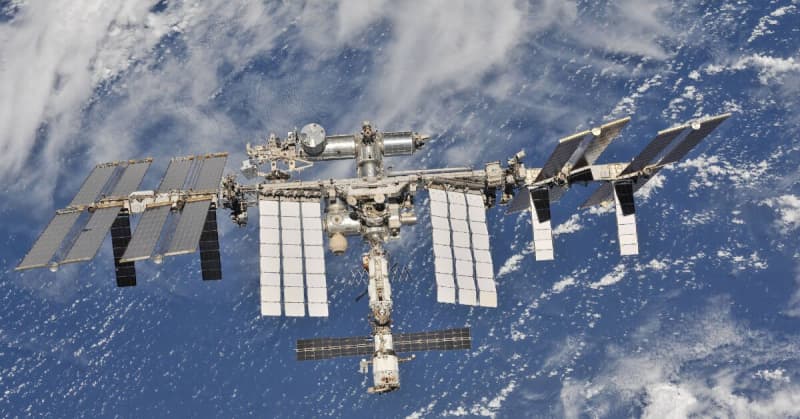
RUSSIAN SATELLITE EXPLODES, FORCING SPACE STATION ASTRONAUTS INTO COVER FOR NEARLY AN HOUR
American space agencies have reported that an obsolete Russian satellite broke up near the International Space Station, forcing the incumbent astronauts into cover for almost an hour.
Knewz.com has learned that the Roscosmos craft broke into more than 100 pieces—all of which were large enough to be tracked from Earth.
NASA’s International Space Station account on X released an update stating:
“Shortly after 9 p.m. EDT, @NASA instructed crews aboard the space station to shelter in their respective spacecraft as a standard precautionary measure after it was informed of a satellite break-up at an altitude near the station’s [position] earlier [on] Wednesday.”
“Mission Control continued to monitor the path of the debris, and after about an hour, the crew was cleared to exit their spacecraft and the station resumed normal operations.”
A report by Reuters noted that the deteriorating Russian Earth observation satellite, named RESURS-P1, was retired in 2022 already, and while its resulting horde of debris continues to be tracked by the United States Space Command (USSPACECOM), it poses no threat to other satellites.
According to a press release, said agency is “continuing to conduct routine conjunction assessments to support the safety and sustainability of the space domain.”
The incident took place at around 12h00 EDT on June 26, and monitoring devices from U.S. space firm, LeoLabs, were able to trace the satellite and its shedding debris for the next eight hours.
This incident follows a developing drama surrounding the breakdown of the Boeing Starliner space capsule.
This spacecraft blasted off on June 5, with two passengers – Sunita “Suni” Williams and Barry “Butch” Wilmore – from Cape Canaveral’s spaceport in Florida on what was supposed to be an eight-day mission.
Notably, the departure occurred after two failed launches on May 6 and June 1.
The Guardian noted that the spacecraft had thruster control issues and helium leaks.
A spokesperson for Boeing was reported saying: “Four of the five thrusters that were previously shutting down are now operating normally. This means only one thruster out of 27 is currently offline. This does not present an issue for the return mission.”
NASA on the other hand, has added weight to Boeing's defense by denying that Williams and Wilmore are stranded, and claiming that despite the helium leaks there was enough of the gas for the return trip.
In a statement quoted by Space Connect, the space agency said that the capsule “currently has enough helium left in its tanks to support 70 hours of free flight activity following undocking.”
Be the latter as it may, Boeing and NASA have scheduled two spacewalks; one which occurred on June 24, and the second which is scheduled for July 1.
While both organizations have noted that Williams and Wilmore will return after these dates, they have admitted that they are not sure when.
2024-06-27T21:43:54Z dg43tfdfdgfd